Use Phyllo with Postman to access creator data across platforms

This is a guest post written by Phalgun Guduthur, head of product at Phyllo
Being a creator is not a straightforward job. Despite having the freedom to truly pursue their passion and build multiple sources of income, creators often struggle to obtain appropriate financial documents, apply for credit, get formal proof of work, find tools that monitor their success, and much more. In that sense, creators have very similar resource and tooling requirements as small and mid-sized businesses (SMBs). Additionally, data from creator platforms isn’t easy to obtain, and it’s also severely fragmented and at risk of being tampered with. This means that today’s creator economy lacks the essential infrastructure that provides reliable and secure data access while honoring consent and permissions from creators.
These problems with the creator economy make it very difficult for developers to build solutions for creators. Here’s where developers feel stuck:
- Most creator platforms—barring a handful—do not provide open APIs to integrate with, which denies developers access to reliable, creator-permissioned data.
- For the few creator platforms where open APIs are provided, the data available is limited and developers must exert a significant amount of effort in maintenance.
- Data obtained through third-party agencies (TPAs) isn’t creator-consented and is often of an inferred nature. Additionally, the data refresh frequencies of TPAs are very low.
Enter Phyllo: The universal API for creator data
Phyllo addresses these pain points by providing one unified API pipe that helps developers access user-permissioned data across multiple creator platforms, such as YouTube, TikTok, Instagram, Twitter, Facebook, Twitch, and more.
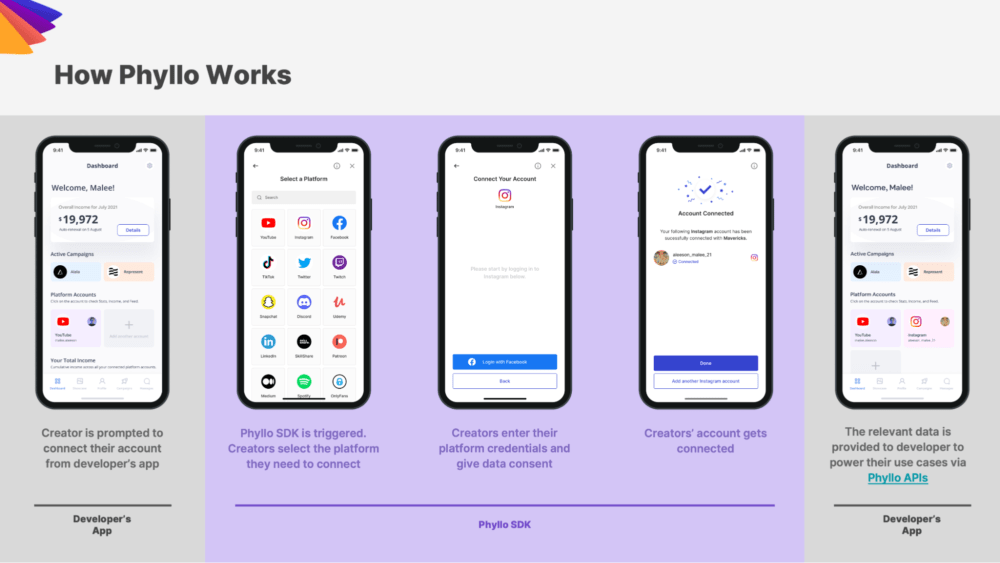
Phyllo takes care of data normalization, platform partnerships, and app approvals, allowing developers to focus their efforts on the product they’re building without spending bandwidth on building infrastructure to connect creator platforms. Phyllo APIs can power critical use cases in industries such as influencer marketing, financial services, creator tools, social identity verification, and Web3.
The data provided by Phyllo is divided into these API products:
- Identity: Helps to instantly verify a creator’s identity and obtain their profile information, such as number of followers, subscribers, bio, and more.
- Engagement: Pulls out content published by creators and helps drill down into their engagement metrics, such as likes, impressions, and shares.
- Income: Fetches data about the creator’s income streams across social and commerce platforms.
- Audience: Helps understand the creator’s followers and subscribers, such as their geographic and gender distribution, sensitivity, and more.
- Comments: Gets the comments on a particular piece of content published by a creator, as well as the comment’s likes and replies.
Check out our full coverage guide to understand the data attributes provided by the above APIs and their support across platforms.
Start using Phyllo on Postman
Postman provides a quick and easy way to get started with Phyllo APIs without any additional code. You can use the Phyllo public workspace on Postman to access our collection of pre-populated HTTP requests that can be sent to the Phyllo API. Here’s a step-by-step guide that will help you get up and running with Phyllo’s Postman Collection for ad-hoc exploration and testing.
Step 1: Once inside the Postman workspace, go to Collections and click Phyllo APIs.
Step 2: Fork the collection by providing an appropriate Fork label and selecting the Workspace where you want to fork.
Step 3: Once the fork is completed, you will land at the below screen. The Phyllo Postman Collection uses Postman environment variables to simplify each API request. Select the Phyllo Sandbox environment in the top right corner. Also, ensure the authorization type is set to Basic Auth.
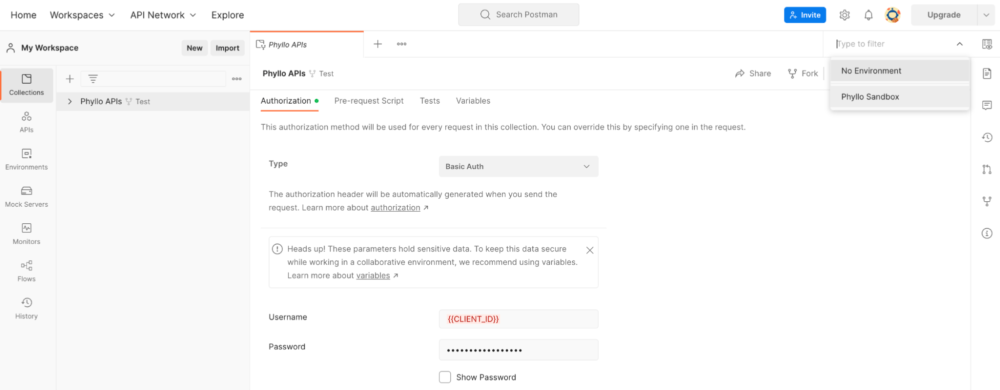
Step 4: Now, to get the Phyllo API keys for the Phyllo Sandbox (Client ID and Secret), you need to sign up on the Phyllo Developer Dashboard. Once you sign up, you’ll be able to see your API credentials on the homepage. Copy and paste them into the screen shown in Step 3.
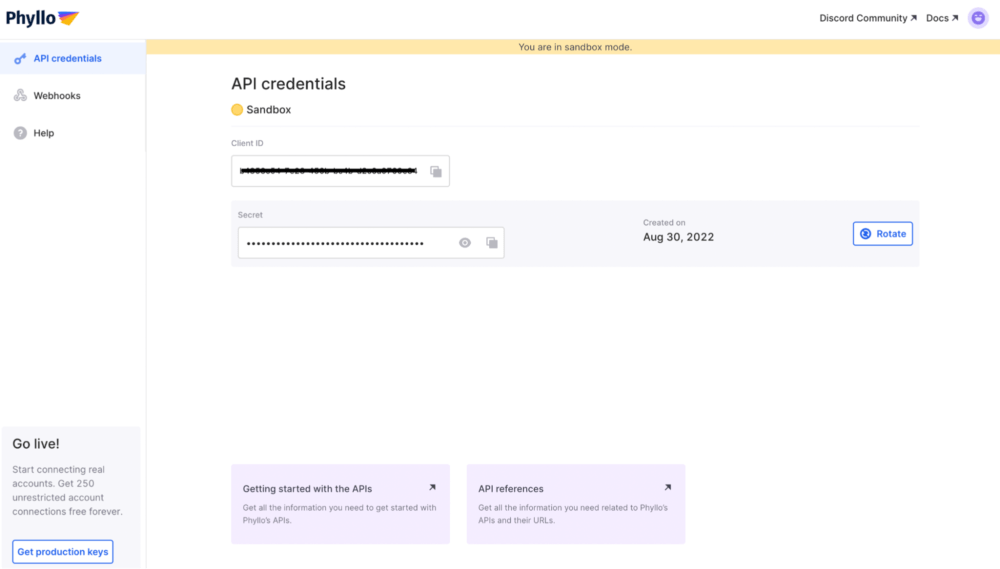
Step 5: Click Save the Collection to save this configuration.
Step 6: You can now start making Phyllo API requests in the Phyllo Sandbox:
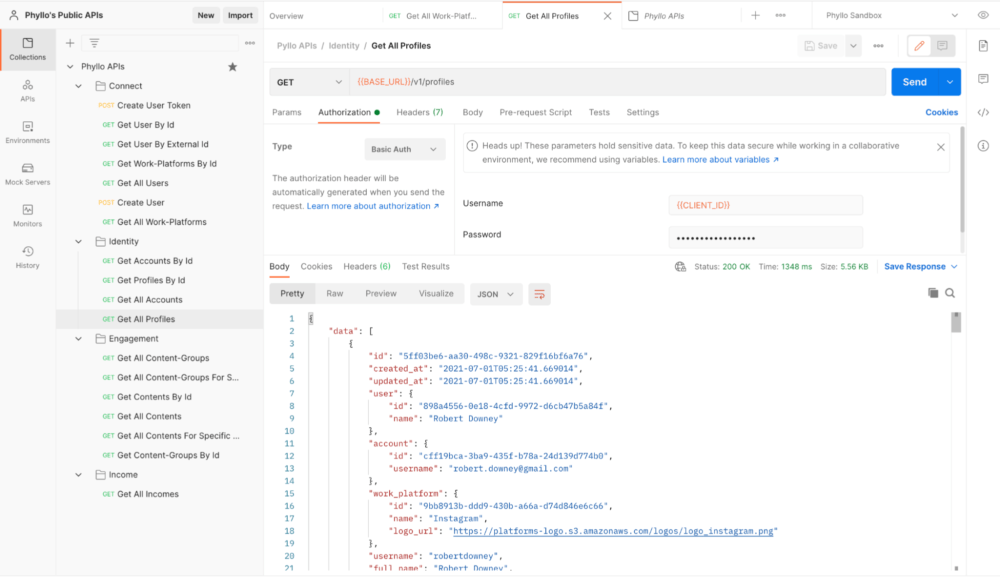
Step 7: Once you’re done testing and get a hang of the API’s functionality in the Phyllo Sandbox, you can request production access from the Phyllo Developer Dashboard. If you open dashboard.getphyllo.com, you’ll see a button on the bottom left called Get production keys. After clicking it, you will receive a form from Phyllo requesting some details about your business use case. Once you submit the form, you will receive production keys and will be all set to build your own creator platform with Phyllo. Check out our detailed API documentation for an in-depth guide on implementing Phyllo APIs.
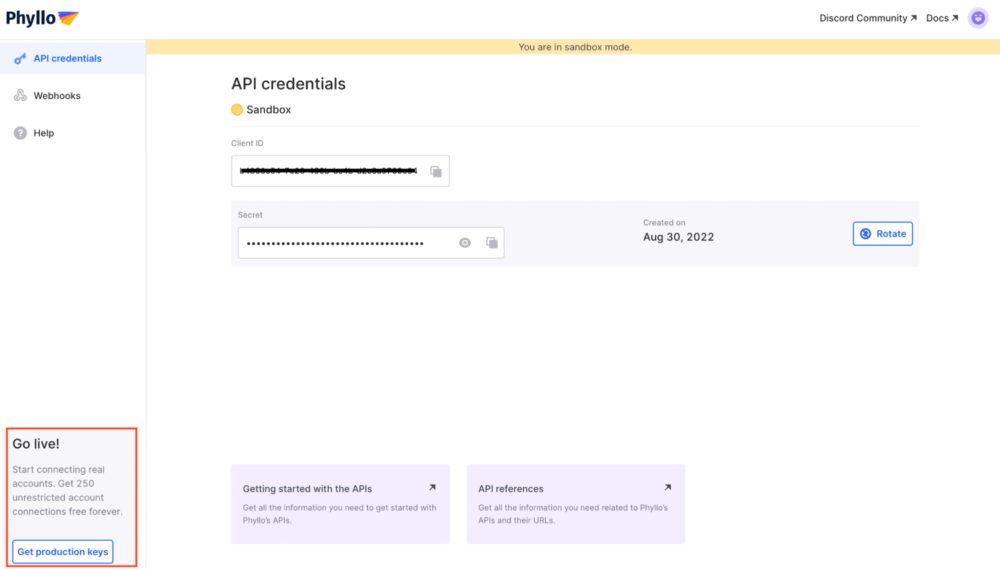
What can I build with Phyllo?
Developers have been surprising us with how they are leveraging the data available through Phyllo. Some of the common uses are:
- Financial services for creators.
- Creator tools like link-in-bio and social engagement trackers.
- Social identity verification for Web3 and digital-native companies.
- Portfolios of creators.
- Influencer marketing ROI measurements.
For inspiration on good implementations of Phyllo APIs, you can check out how Beacons built their powerful media kits exclusively with data from Phyllo. Other examples of companies that have unlocked their full potential with Phyllo include CreativeJuice, Karat, Creator.co, MagicLinks, Nerve, Bintango, and many others. To get started with Phyllo, you can sign up here and reach out to our very helpful support team via Discord or email. We look forward to hearing from you!
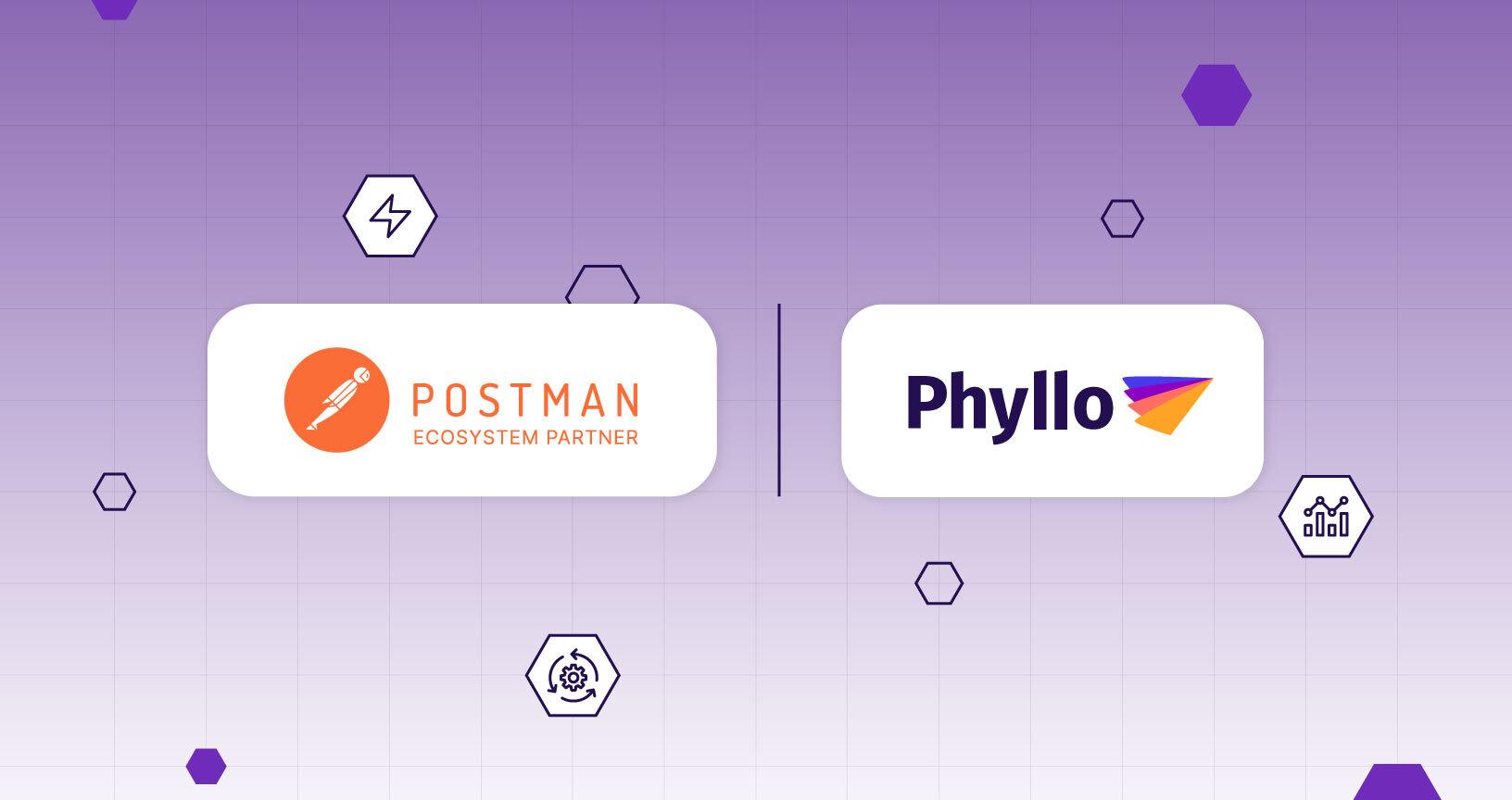
getting 403 forbidden
{
“message”: “Authorization header requires ‘Credential’ parameter. Authorization header requires ‘Signature’ parameter. Authorization header requires ‘SignedHeaders’ parameter. Authorization header requires existence of either a ‘X-Amz-Date’ or a ‘Date’ header. Authorization=Basic NWQ1MDJkZWItNmYxYy00MDhlLTg2ZGItOTc1YTgxODM4ODM0OjNmNDZkYTMxLWQ3N2ItNGYxMS05MGIwLTE0MjA3NGE5ZjhmYQ==”
}
Please contact our support team at http://www.postman.com/support, and they’ll be able to help you.